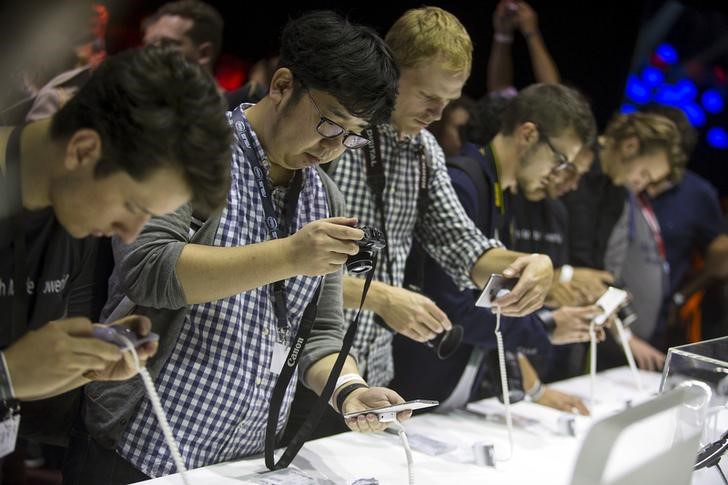HONG KONG (Reuters) - China's Huawei Technologies Co [HWT.UL] is set to be the fastest-growing major smartphone vendor this year, analysts said, boosting its drive upmarket to challenge industry giants Samsung Electronics (KS:005930) Co and Apple Inc (O:AAPL).
The upbeat view came after Huawei, the world's third-biggest smartphone supplier by volume, on Tuesday said third-quarter global smartphone shipments jumped 63 pct year-on-year to 27.4 million handsets. Higher-end device sales also grew, a key target for Huawei as it seeks to shed its budget supplier image.
The July-September numbers puts Huawei on course to move 100 million smartphones this year, 33 percent more than in 2014. That would mean it outpacing growth forecast for major rivals such as Apple, Xiaomi Inc (XTC.UL) and Lenovo Group Ltd, analysts said.
"It's hard to find a solid contender to Huawei for the top three position (after Samsung and Apple) in the short term," said Nicole Peng, Asia Pacific director at research firm Canalys. "That's impressive growth."
Huawei remains a distant third, with a smartphone market share worth $7 billion in the second quarter, about one-fifth of those of Apple and Samsung, according to Canalys.
Still, analysts said Huawei's branding shift to higher-margin premium models, as well as strong relations with telecom carriers at home and abroad, are now helping it cement its position in the global top three. Previously, smaller players often swapped that rank in price wars.
Third-quarter deliveries climbed 81 percent and 98 percent in China and Europe respectively from a year ago. About a third of the quarterly shipments were mid- to high-end models, Huawei said, up from 25 percent a year earlier.
Huawei doubled its China smartphone revenue in the first half of this year, defying a slowdown in the world's biggest handset market that is enveloping rivals Xiaomi and Samsung.
Despite the strong growth in both Europe and China, analysts said Huawei still needs to win over consumers in the United States - where its market penetration remains low - if it is to become a serious rival to Samsung and Apple as a truly global smartphone brand.
After its products were once labeled a national security risk in a U.S. Congressional report, which said Beijing could use Huawei equipment for spying, the firm has this year rolled out new phones and wearable devices in a bid to attract new buyers. The company declined to say how many smartphones it has sold in the U.S.

"It's very interesting to see whether they will do well in the U.S. (market)," said Nomura analyst Leping Huang. "It still has some room to grow."